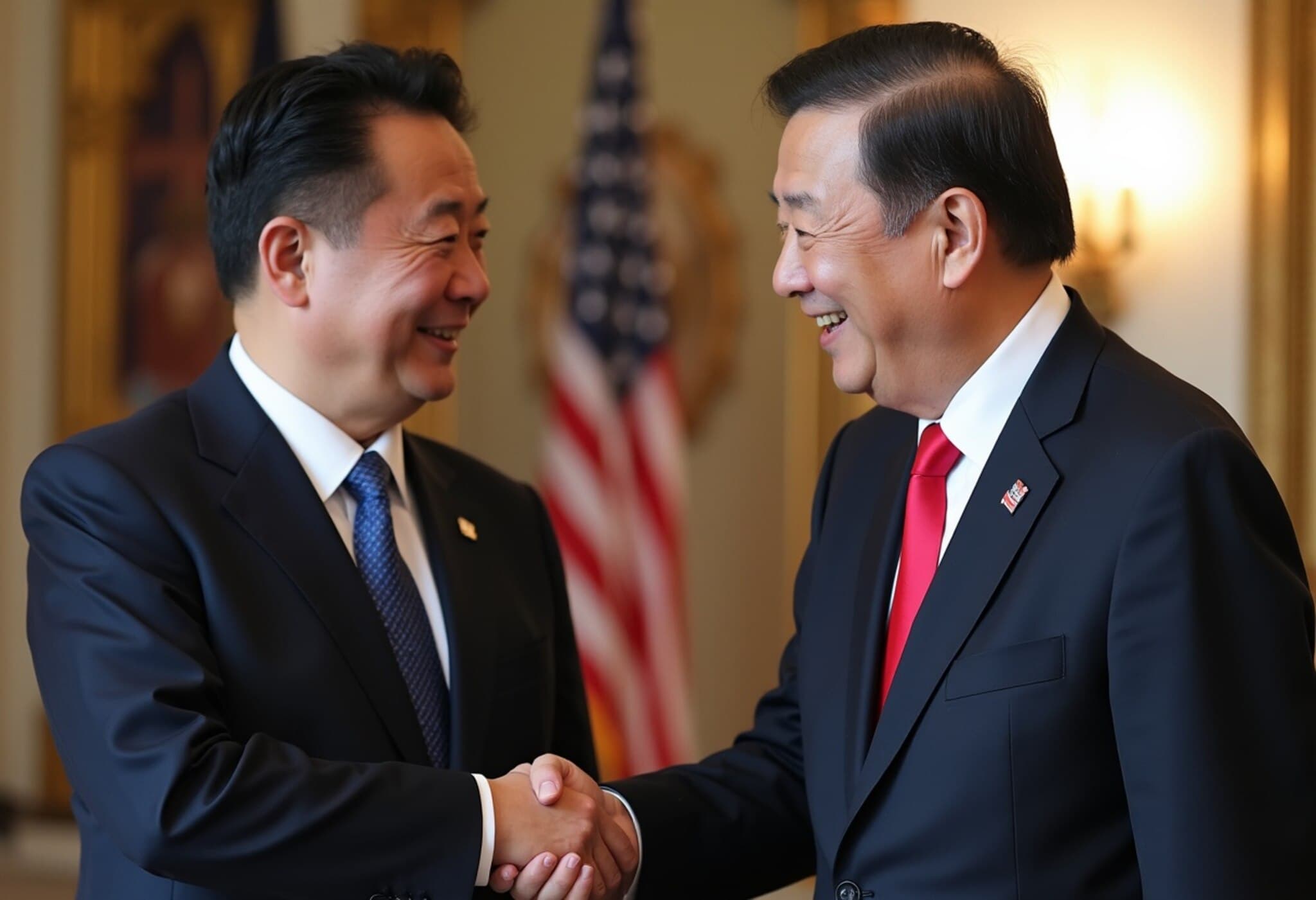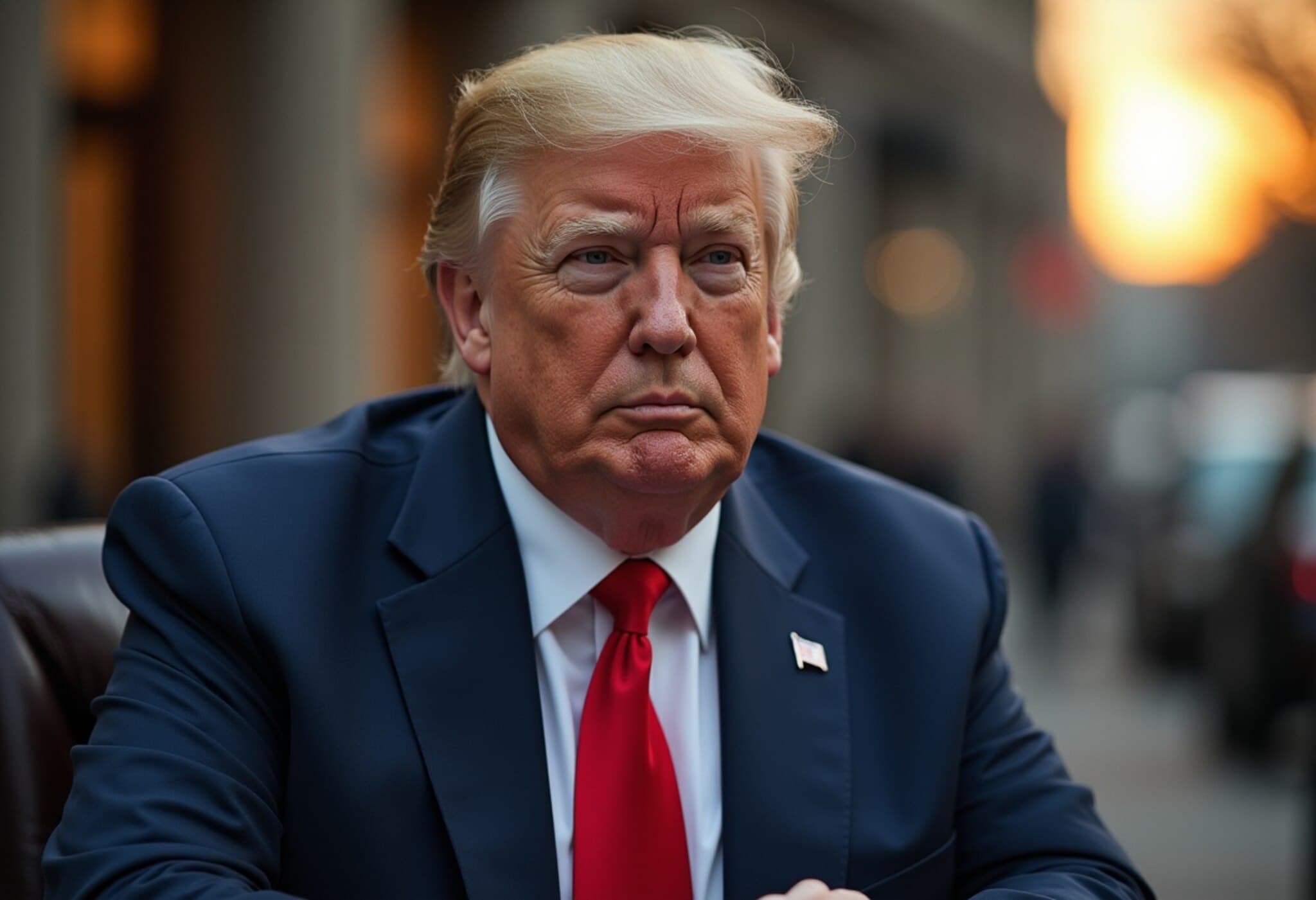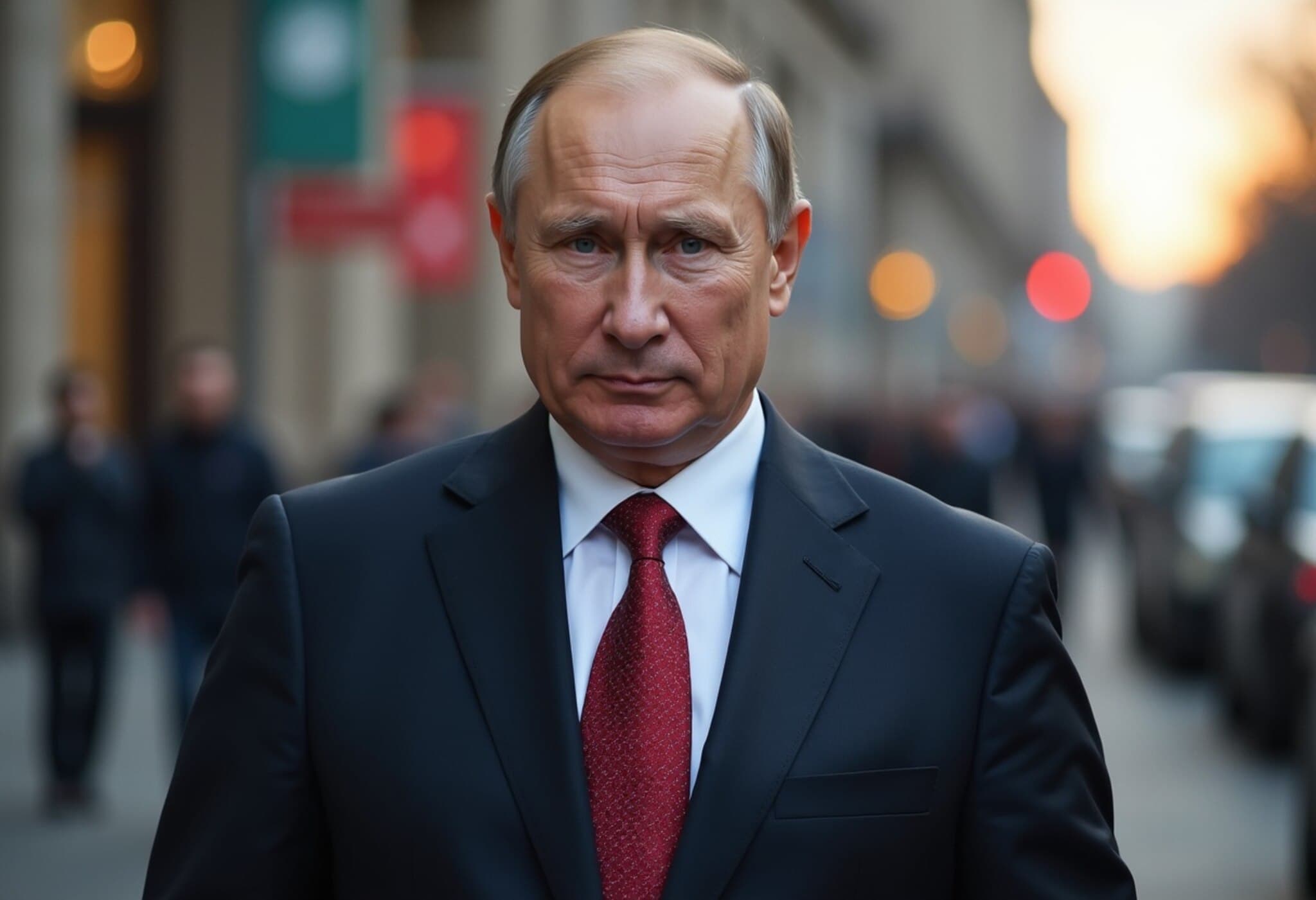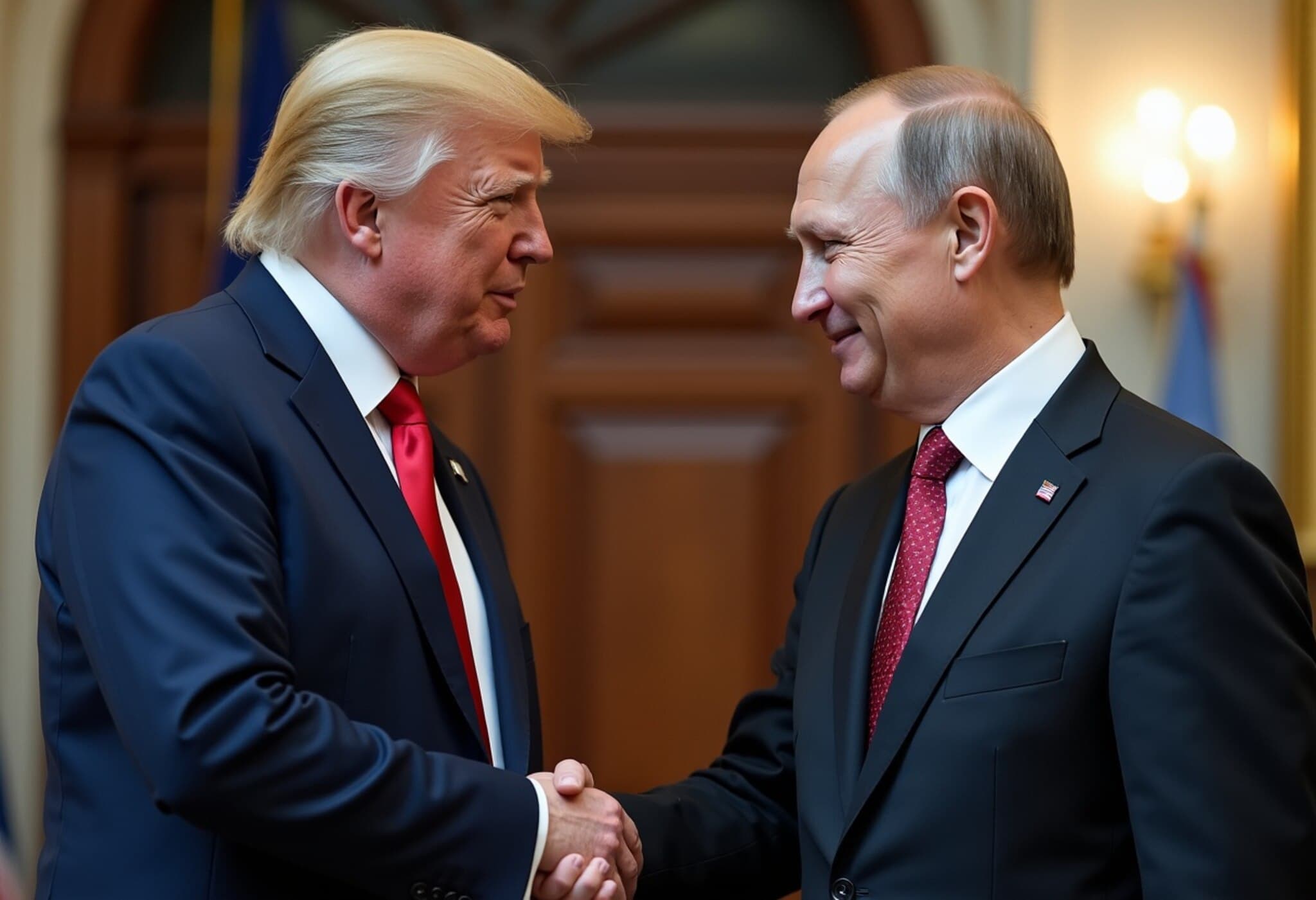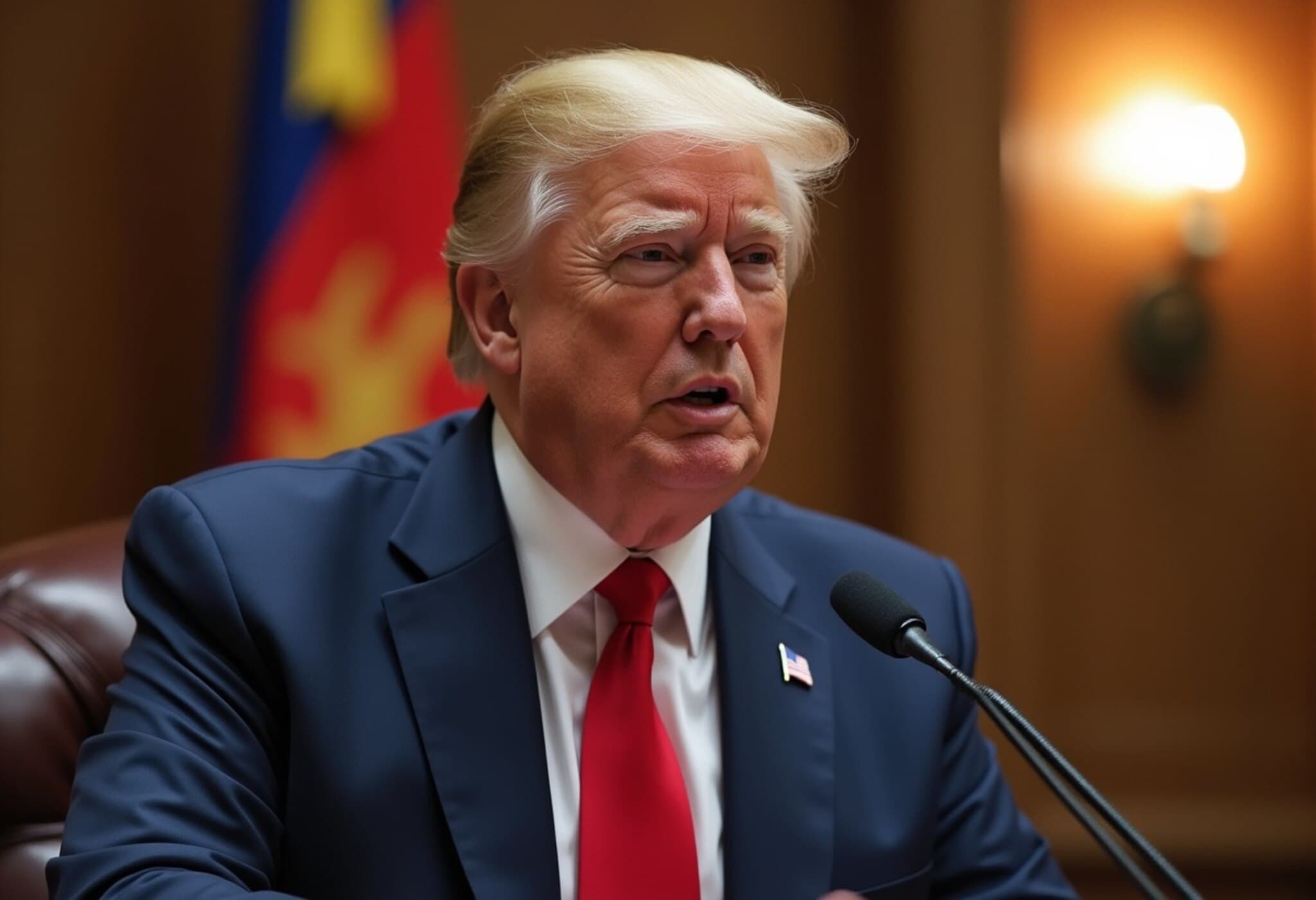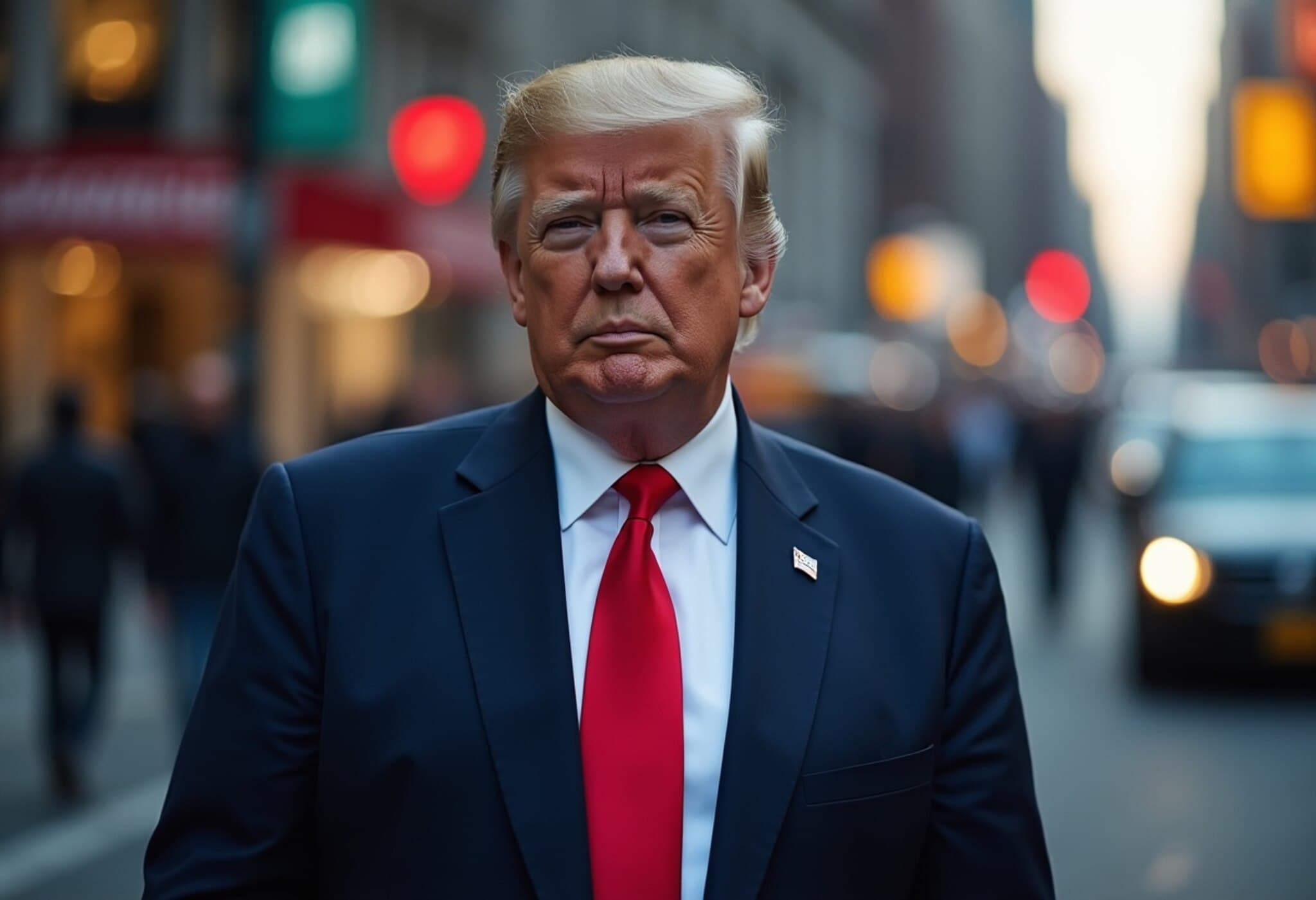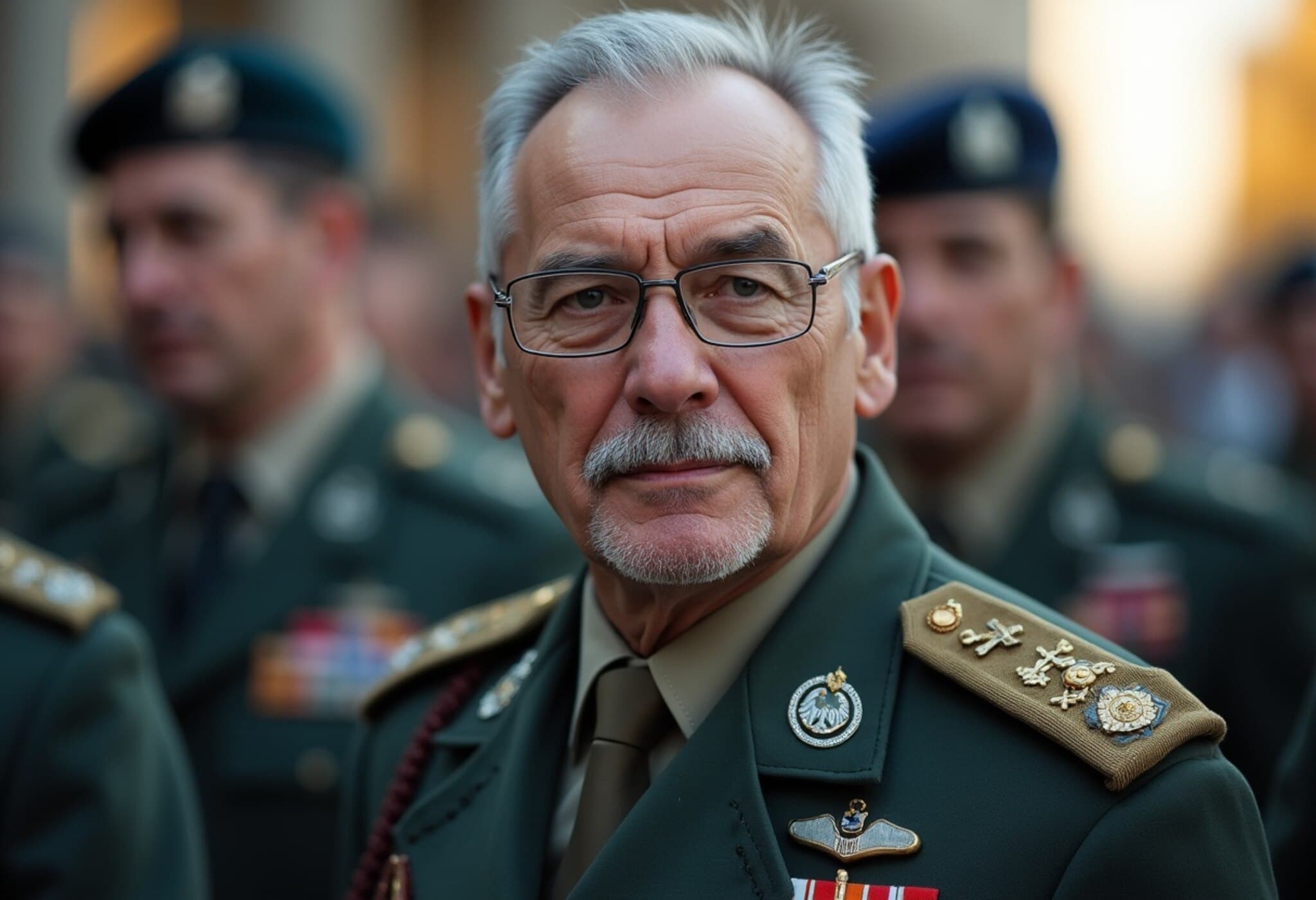South Korea’s President Lee Jae-myung Meets Donald Trump: Cooperation Amid Tariff Standoff
In a highly anticipated Oval Office meeting on August 26, 2025, South Korean President Lee Jae-myung sought to recalibrate the trade and security relationship with US President Donald Trump. Despite an engaging dialogue filled with optimism over joint cooperation, especially regarding North Korea and defense alliances, the US administration held firm on its decision to retain the 15 percent tariff on South Korean imports, maintaining a major sticking point in bilateral trade relations.
Charmed but Unyielding: Lee’s Diplomatic Push Meets Trump’s Resolve
President Lee deployed a charm offensive, praising President Trump’s economic stewardship, including the robust performance of the US stock market and his distinctive Oval Office interior design choices symbolizing strength and optimism. Lee capitalized on this goodwill to underscore the urgency for peace on the Korean Peninsula, even proposing a symbolic initiative — urging Trump to consider erecting a namesake tower in North Korea as a monument to peace should reconciliation be achieved.
However, Trump remained steadfast, asserting, “We stuck to our guns. They are going to make the deal that they agreed to make.” His comments underscored Washington’s unwillingness to renegotiate the tariff terms, reflecting a broader US policy trend toward leveraging tariffs to address trade imbalances and protect domestic industries.
Strengthening Strategic Ties Despite Trade Divergence
Beyond tariffs, both leaders expressed strong commitment toward joint approaches on key issues:
- North Korea: Enhanced cooperation on denuclearization efforts and conflict de-escalation.
- Collective Security: Deepening of defense partnerships amidst shifting East Asian geopolitical dynamics.
- Shipbuilding and Investment: Moving forward with a non-binding agreement to govern a proposed $350 billion investment fund, aimed at bolstering trade and industrial collaboration.
This investment fund, outlined in a July trade deal, is crucial for Seoul’s economic agenda, though details regarding profits and fund governance remain under negotiation. South Korean Presidential Policy Adviser Kim Yong-beom, visiting Washington for the summit, highlighted progress toward drafting a memorandum of understanding (MOU) to clearly delineate these arrangements, including a productive two-hour meeting with US Commerce Secretary Howard Lutnick.
What This Means for US-South Korea Relations and Regional Stability
While tariffs remain a contentious trade hurdle, the summit sheds light on a complex relationship balancing economic friction with strategic imperative. The US’s insistence on retaining tariffs exemplifies a continued trend under Trump’s administration of applying economic pressure to achieve broader geopolitical goals. Meanwhile, South Korea’s approach — mixing diplomacy, economic negotiation, and aspirational peacebuilding — illuminates its multifaceted role in regional security architectures.
From an American policy perspective, maintaining tariffs despite diplomatic overtures signals prioritization of trade leverage within the administration’s broader economic nationalism frame. However, it also raises questions:
- How sustainable is this trade friction amid tight security alliances?
- Could unresolved tariff issues hamper South Korea’s willingness or capacity to fully cooperate on North Korean denuclearization?
- What diplomatic or economic trade-offs might emerge as each side seeks to uphold national interests?
Editor’s Note: Navigating the Crossroads of Trade and Security
This summit between Lee and Trump epitomizes the intricate dance of modern diplomacy, where economic policies and security concerns intertwine. While tariffs remain unchanged, the openness to investment cooperation and dialogue on North Korea reflects pragmatic acknowledgments of mutual dependency. The unresolved tariff question invites deeper scrutiny of how economic tactics influence alliances and peace efforts in one of the world's most volatile regions. For policymakers and observers alike, this meeting underscores the continuing challenge of aligning economic nationalism with global cooperative security frameworks.

